Leadership is an essential element that contributes to the success or failure of civil society organisations (CSOs). If properly nurtured within an organisation, it can be the panacea that can contribute towards ensuring a stable health in CSOs and boost their growth.
Yet, it constitutes the weak link in many CSOs working in the Congo Basin. From Well Grounded’s experience in this region, leadership “affects all aspects of an organisation and can therefore have either a strong positive or negative influence on the ability of an organisation to achieve its desired impact” (Well Grounded Discussion Series 2016, Issue 1- unpublished).
Through our extensive work in the Congo Basin since 2010, we have identified four main leadership challenges common to African CSOs. These include:
- Centralised leadership: This refers to a hierarchical system of governance within organisations that take a strict top-down approach. Power is often retained by one person or a few people. Information is not widely shared and decision-making is not participatory. Certain responsibilities and tasks are not delegated due to lack of confidence in colleagues’ capacities, for fear of losing control over the outcomes or because having information means having power and possibly, the ability to wield that power.
- Externally focused leadership: This is a situation wherein leaders tend to place a higher priority on their externally-facing role instead of dedicating sufficient time and effort in running the organisation for its own growth. Leaders fail to provide adequate support to their staff at work and do not ensure that the right systems are put in place to ensure a well-functioning organisation.
- Founder syndrome: This is about the longevity – and sometimes permanence – of certain leaders. This often leads to the absence of an active cultivation or mentoring of a new generation of leaders. More so, it surmounts to a limited experience in how to manage the transition between leaders. This can create barriers to a healthy development of the organisation.
- The stark confusion between leader and leadership: Many people do not fully understand that being a ‘leader’ involves occupying a position within a structure and playing a mobilising role while ‘leadership’ is a set of attitudes, qualities and skills that any person can develop.
On top of these categories, the practical analysis of some existing leadership challenges showed there may also be ‘self-centered leaders’ at the helm of some CSOs in the sub-region. Such leaders may not fully uphold leadership qualities in their effort to lead CSOs. They may portray one or more of the following characteristics:
- They can be overzealous, overly engaged and tend to ‘do it all’ on their own. Hence, they are overwhelmed with the workload they take upon themselves.
- They tend to believe that the success of the organisation depends solely on their efforts.
- They may not involve their team members in decision making processes and workload distribution because they do not recognise and appreciate the added value of their colleagues.
- They may not always show that they have confidence in their teams and may not find it important to build the team’s confidence in them.
This may lead to a situation whereby team members perceive the leader to be a dictator with full control over ‘all’ the affairs in the organisation. This can lead to an unhealthy situation wherein team members may not show full commitment to achieve the vision and mission of the organisation.
To improve this situation, Well Grounded, with support from DFID, initiated a leadership development programme. This programme brings together leaders from CSOs in the Congo Basin to learn about leadership styles and qualities, gain new leadership skills and share their successes and challenges with one another.
In April 2017, the second phase of this programme convened 21 participants from 11 CSOs in Cameroon and the Central African Republic. For seven days, participants’ leadership skills were honed.
Elias Djoh, Coordinator of ROLD based in Cameroon was a satisfied participant. By the end of the training, he affirmed to have experienced changes to his temperament which often led him into fierce exchanges with colleagues and partners: “In the past, I was not a good listener and I always wanted my views to be heard. This training has helped me to realise that as a leader, I have to be a better listener.”
Julien Mathe, Coordinator of GASHE, a local CSO in the DRC, who participated in a leadership training offered by Well Grounded in June 2017, stated: “The leadership training allowed me to deepen my understanding of self. Through the emotional intelligence concept, I realised the importance of listening more comprehensively (emotions and actions) in my interactions with colleagues. I have also increased my awareness of mental models that unknowingly shape our behaviour and influence how we work. This awareness gives me a new perception on how I work, delegate and collaborate.”
The leadership development programme is contributing to shape better leaders within CSOs. Beneficiaries of the programme are gaining awareness of their leadership styles and the impact it is having on their organisations. Many of them are making enormous efforts to apply lessons learnt from the programme towards becoming better leaders. We are experiencing a positive change in attitude in most of the participants and this is having a ripple effect within some of the organisations.

